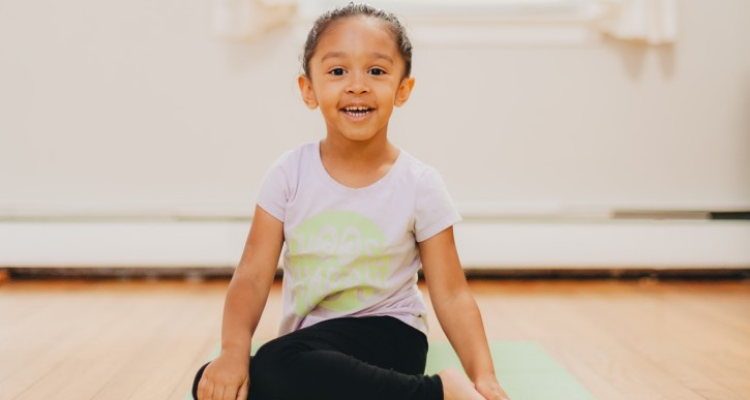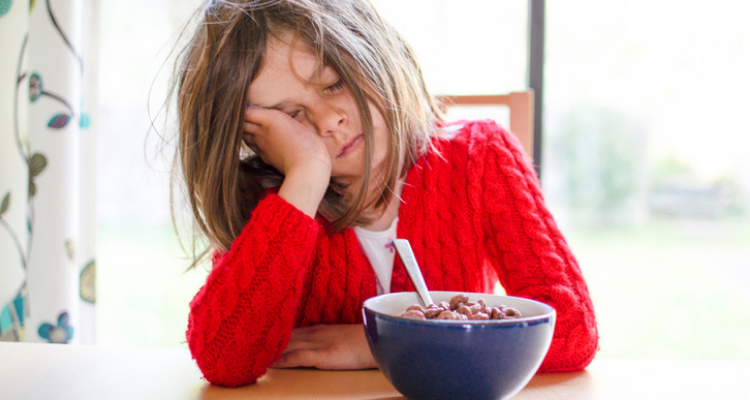
According to the CDC, around 10% of kids between the ages of 2 and 17 have a problem with attention or behavior. This past year and a half, the number of children experiencing mental health issues and anxiousness has skyrocketed, leading parents to wonder how they can best support their kids in these challenging times.
U.S. culture doesn’t place nearly enough emphasis on self-care or open dialogues about mental and emotional health, for kids and adults alike. Our fast-paced lifestyle, pressures to be productive and successful, and lack of social support take a toll on emotional, mental, spiritual, and physical health.
As a parent, learning how to recognize issues in your children and knowing how to help is vital to their overall wellbeing. You are the adult who knows them best and can tell when something is “off.” ’ This could manifest as changes in appetite or mood, trouble sleeping, fatigue, or physical sensations like muscular discomfort, belly aches, or head tension.
Pediatric nephrologist Dr. Matt Hand shares how to pinpoint concerns that need to be addressed in your children, and how to promote self-care to kids of all ages.
Parents' Role in Self-Care for Kids
Determining your role in teaching and supporting your children’s mental and emotional health, including self-care practices, isn’t easy. As a society, we’ve transitioned from an almost authoritarian parenting style to the opposite end of the spectrum, giving our children a choice in just about everything.
Many experts agree that allowing children too much choice can cause anxiousness, fear, and other emotional distress. While it’s important for kids to feel their voice is heard, they also need and want a parent who can set firm limits and offer consistent guidance. Children are not developmentally ready to make many decisions for themselves, and having too much freedom of choice—or a lack of parental limits—can be a major source of stress.
As any parent will agree, finding this balance is no easy task. If you—like many parents—struggle with knowing what limits and guidance will work for your child, consult a support group, therapist, or other mental health professionals in your area.

Age-Appropriate Self-Care for Kids
Self-care ideas for children looks different depending on their age. Here are several strategies to consider for toddlers, kids, and teens.
self-care for toddlers and preschoolers
Small children are likely to display signs of mental or emotional uneasiness through changes in appetite, shifts in normal behavior and mood, and physical manifestations like stomachaches, headaches, and muscular discomfort.
Studies solidly link physical activity to mental and emotional health in children. If exercise isn’t naturally incorporated into your child’s day-to-day routine, look for opportunities to get outside and move around as often as possible.[1] Additionally, allowing daily time for free play and rest is paramount to their overall health. Let your children be bored and play creatively. Not over-scheduling your children can significantly help their emotional and mental wellness.
When at home, it is essential to create an environment that is both safe and accessible. Along with necessary safety precautions, try to put toys, art supplies, cups, water, snacks, and anything else your child frequently needs throughout the day within their reach. Creating this space empowers them to be naturally independent and requires less assistance from adults, which can place unduly stress on everyone.
Teaching young children about emotions by labeling them without judgment is also helpful. If your child has a tantrum, helping them understand that they are feeling anger or sadness by simply saying, “I see you feel angry,” allows them to recognize their own emotions and know you will accept them. Open and frequent dialogue about feelings paired with firm limits and household norms can help your child feel emotionally secure.
self-care for elementary schoolers
Similar considerations for younger children also apply in the elementary school phase: regular exercise, daily quiet time that is unscheduled, and continuing to label and discuss emotions.
The detrimental effects of social media must be considered as your child gets older, as this is perhaps the biggest risk to youth health nowadays. If your child begins using social media, it is crucial to know what they are doing and establish ways to control their use.
Elementary school-age children can also benefit from relaxation techniques. Some might need movement-based techniques, and others might be ready for guided meditation or deep breathing practices. With small children (you can begin these methods as early as four years of age), it’s best to keep the time to just a few minutes.
As your child grows, they gain a greater understanding of their emotional state and how external factors can impact their wellbeing. Continue to have open conversations about emotions, regular check-ins about how they feel, and always make sure they have a safe person and place if they need to talk.
self-care for teens
One rule applies equally to all age groups: limits on screen time. Research confirms that excess screen time is detrimental to psychological wellbeing in kids of all ages, contributing to lower self-esteem, less emotional stability, low self-control, difficulty making friends, and other serious developmental difficulties.[2]
Two transitions in a child’s life that bring the most mental and emotional changes are the start of middle school and high school. Along with the same social media and screen considerations discussed above, try to schedule quality time with your teen regularly, without devices.
When experiencing emotional or mental upset, teens also tend to show abrupt changes in behavior, mood, appetite, or physical discomforts. With teens, you can have open and honest discussions that normalize feelings and challenges that often aren’t discussed enough in our society.
Teens can greatly benefit from meditation, breathing, and other relaxation techniques for extended periods. Try to stay connected with their teachers, coaches, or other adults in their lives to ensure you have a sense of how they are responding to different parts of their lives.
herbs and supplements to consider
Nutrition is foundational to kids’ self-care. Regular, balanced meals containing whole foods help to sustain the brain. Eating meals seated and relaxed helps with digestion and opens a space to connect with the healing power of food.
In more severe cases of anxiousness, trouble sleeping, or other issues, your child’s integrative doctor might recommend L-theanine, vitamin D, omega-3 fatty acids, CBD oil, or other calming nutrients and herbs to supplement a well balanced diet. Liquid vitamins and supplements can be especially helpful for children.
final thoughts
Like anything else in the world of nutrition and functional medicine, there is no one-size-fits-all approach to kids’ self-care. Target what works for your child. Whether that means moving meditation for young kids, yoga or tai chi for older children, or other practices, find what works based on your child’s personality and unique needs.
While these considerations and practices are essential for all families with children, those with specific medical challenges find even greater benefit in implementing regular self-care. Talk to your child’s integrative doctor to come up with a plan today.

[1] https://www.healio.com/news/psychiatry/20170106/exercise-may-prevent-depression-in-middle-childhood
[2] Twenge, J. M., & Campbell, W. K. (2018). Associations between screen time and lower psychological well-being among children and adolescents: Evidence from a population-based study. Preventive medicine reports, 12, 271–283. https://doi.org/10.1016/j.pmedr.2018.10.003


















